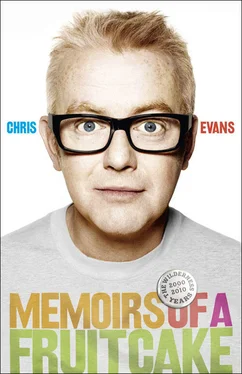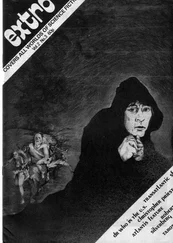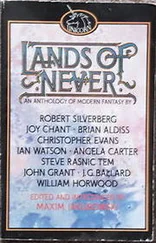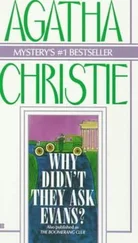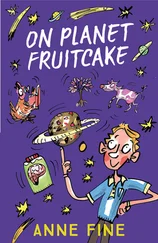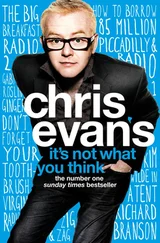As I dialled his number on my car phone, I continued to rehearse my pitch to him as to why he might want to join the wonderful world of the wireless. After no more than a couple of rings he picked up and I launched straight in.
‘What do you have to lose?’ I concluded after I was done.
‘Chris, I’m not so sure you know, radio’s what you do, I’m a telly man, always have been, and that’s where I want to be.’
I suspected this was how the conversation might go and I could understand Jonathan’s concerns. Some television people – in those days, especially – may have seen radio as a step down, but I had prepared my little spiel. I told Jonathan that radio was the best ‘shop window’ in our business bar none; the perfect advert for a broadcaster’s talent. I explained to him that because he was so natural he had nothing to fear. I added that radio also has a knack of easing a broadcaster back into people’s consciousness, whilst also affording them a more intimate relationship with a much more discerning and receptive audience.
This – and whatever else I said during the course of our brief chat – must have struck a chord, as Jonathan called me back a couple of days later, saying he was up for it. He was on air within a fortnight and quickly settled in to become another quality cannon to add to our weekend arsenal of radio fire power.
We gave him a show that ran from ten till one on a Saturday morning. It was precisely the time my old Greater London Radio show had aired almost a decade before, not the only thing the two shows had in common. I called in my old colleague Andy Davies to produce Jonathan. Andy had done exactly the same for me at GLR, so I thought he would be the perfect person to hold Jonathan’s hand – and I’m glad to say I was right.
The happy couple were still together ten years later, doing an almost identical show for the mighty Radio 2 and winning countless awards in the process. The shop-window theory worked a treat; within a year of joining us, the BBC came for Jonathan in a big way, transferring his show lock, stock and barrel to Saturday mornings on their national FM network.
With the power of Radio 2 behind him, Jonathan was firmly back on the entertainment map and it was only a matter of time before the clarion call of television could be heard. The birth of his Friday night BBC 1 talk show followed in 2001 and in no time at all Jonathan was back on top, where he would remain for the best part of the next decade.
The irony was that Jonathan wrote to me asking if I would be a guest on that first series of his talk show, some three years after I had employed him at the radio station and approximately a year after I had gone slightly cuckoo and off into my wilderness years. In many ways, Jonathan and I had effectively swapped places, but the last thing I wanted to do at that point was jump back on the bus. I replied to him by letter saying, ‘Thanks old boy, deeply flattered, good luck with your new venture but I’m not really “at it” anymore.’
I meant every word at the time and in truth never expected to be ‘at it’ again – least of all with him, on the very same show, nine years later, which is exactly what happened.
I did eventually appear on Friday Night with Jonathan Ross in October 2009 to promote my first book, It’s Not What You Think.
However, as you will come to learn, this was a book that only came about as a result of Jonathan’s infamous appearance on Russell Brand’s radio show. I can assure you that if Jonathan and Russell had not made that phone call to Andrew Sachs, neither of my two books would ever have come into being, but that is a story I will return to later on.
TOP 10 THINGS A PROPRIETOR SHOULD NEVER DO
10Get drunk with the staff
9Think an employee is ever having a natural conversation with them
8Park a big posh car right outside the building
7Have more meetings
6Become involved in personal issues
5Trust anyone
4Be swayed from your core beliefs
3Employ pals
2Employ beautiful secretaries
1Incentivise the workforce: reward – yes; dangle carrot – no. One day you will run out of carrots
WITH THE PURCHASE OF VIRGIN RADIO,unbeknown to me, the seeds of what was to become a lonely and almost fatal madness had also been sown. The aforementioned artistic freedom was there, for sure, but this came hand in hand with corporate responsibility, and these two components, yoked together, were never going to happily coexist. Something I would unfortunately have to discover the hard way.
I should have spotted the signs. I remember turning up for work at Golden Square in Soho one morning, no more than a month into my tenure. It was the middle of winter, when early mornings are painful to the touch. No sooner had I entered the building than I was confronted with what must have been fifty or sixty boxes piled on the ground floor, taking up so much room they almost made the corridor impassable. Upon inspection I discovered that inside each of these boxes was a brand new computer.
‘What do we need all these computers for?’ I remember asking myself. ‘What’s wrong with the ones we already have? Who is cleared to sign cheques for such large orders and shouldn’t I know about purchases of such bulk?’
Not the most colourful of thoughts with which to start one’s day.
For ownership – see headaches. Lord, why did I not realise? Lots of people (OK, men, mostly) like the idea of owning their local pub, or golf course, or restaurant, but it’s far better just to go there, have some fun, pay the bill and leave the mowing of the fairways and cleaning of the dirty pots to someone else.
Worse than managing things, though, is managing people.
I will never forget my first encounter with a group of my new employees, when I organised for all the DJs to meet up at the local pub for a bonding session. I thought they would be a like-minded bunch to start with; my fellow presenters in a world full of padded walls, soundproof glass and overblown egos. In contrast to other stations – where off air, the DJs barely ever see or speak to each other – I was determined that at my radio station things would be different. We would be one big happy family, like the Monkees on telly, or the Beatles in A Hard Day’s Night. I thought a regular get together would give my guys a voice, a feeling of inclusiveness – nothing too cute or touchy-feely, merely a line of communication to each other and to me, their boss. I thought the best plan would be to organise a lunchtime meeting in a pub round the corner from the studio.
Wrong!
The morning meeting I had across town that day overran and, as a result, I found myself having to sprint the mile or so back to base to make it on time for our DJ summit. I eventually arrived at the pub a few minutes after one o’clock, puffed out and red in the face but nonetheless excited about the prospect of meeting my elite guard all together for the first time. I was looking forward to a few beers and getting down to the business of encouraging the guys to spring forth their opinions and visions for our future together.
Wrong! Again.
There they were, my all-star line-up, stood somewhat lacklustre to say the least, at the bar, barely saying a word to each other.
What on earth were they thinking? Did they have it in their minds that I was going to fire them on the spot?
Looking back, perhaps they did. Perhaps it was exactly that, their lack of cheery chat may well have been terror-induced, but they were not to know my motive was one of unification, not suppression.
Читать дальше
